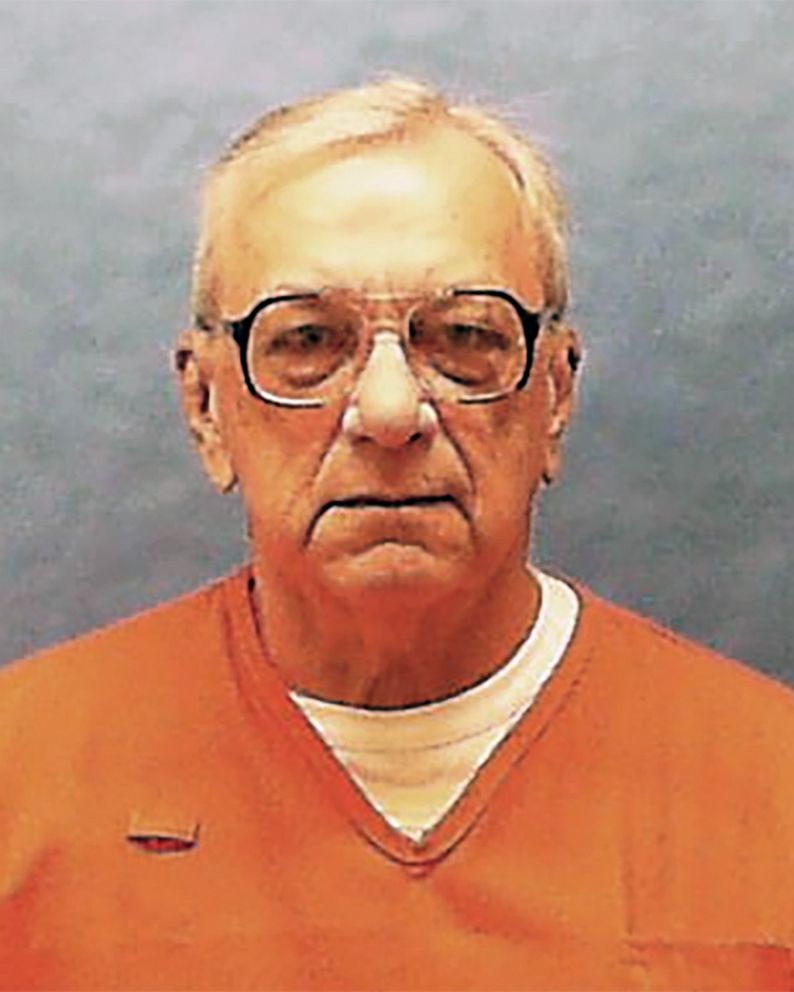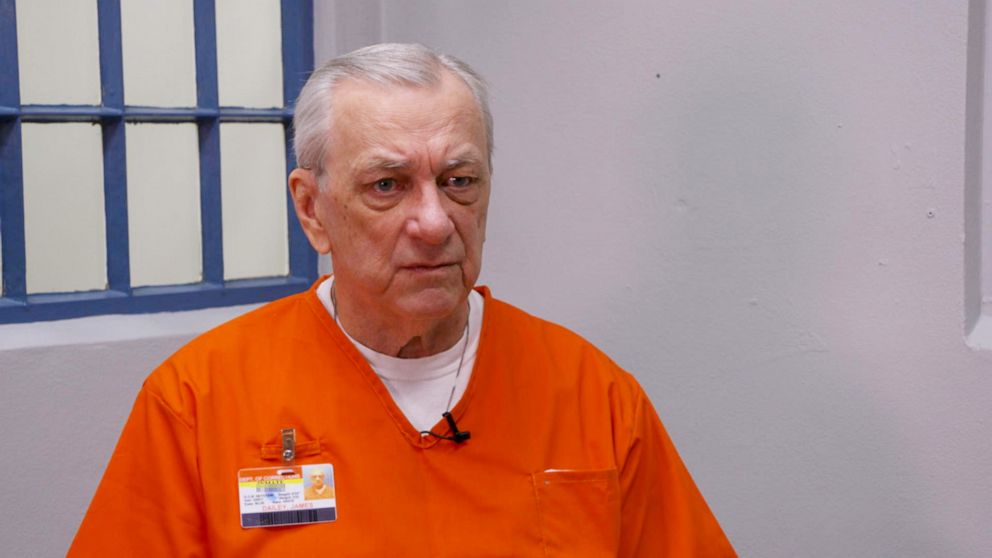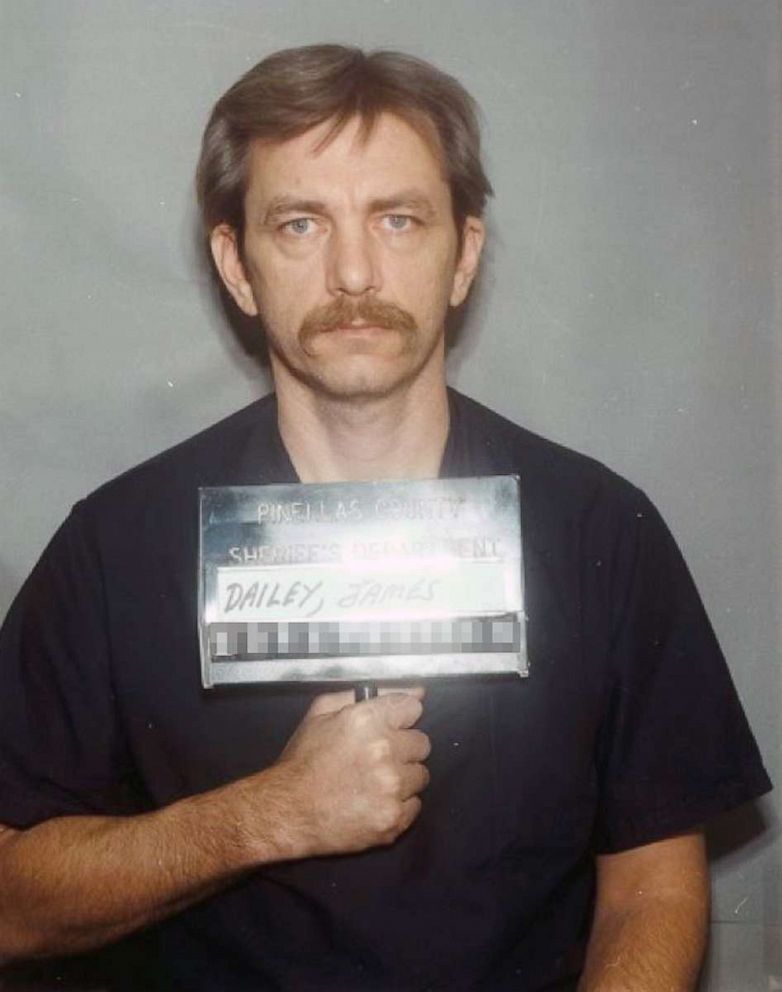Attorney says jury didn't hear key information in death row case
James Dailey has been on death row in a Florida prison for more than 30 years.
A man who has been on death row in a Florida prison for more than 30 years has petitioned the courts to have his conviction and death sentence vacated, in part citing a recent interview conducted by ABC News.
James Dailey was one of two men convicted of murdering Shelly Boggio, a 14-year-old girl, in 1985. His most recent motion to have that conviction and sentence vacated, filed Tuesday night, alleges that the prosecutor had committed "a fraud on the court" by withholding key information about the star witness from the jury.
Dailey’s defense attorneys allege that the star witness, Paul Skalnik, misrepresented his history of criminal charges during his testimony and that the prosecutor failed to correct the record for the jury. The motion alleges that Skalnik’s failure to disclose that he had been charged with lewd and lascivious assault on a child under 14 left the jury with a "grossly distorted (diminished) understanding of Skalnik’s criminal history."
This latest motion is a supplement to a much larger filing to vacate the conviction.
Dailey’s defense attorney, Josh Dubin, told ABC News late Tuesday that by failing to reveal to the jury that the prosecution's star witness in the trial, a jailhouse informant, had been charged with the sexual assault of a minor a few years earlier, former Pinellas County Prosecutor Robert Heyman and his co-counsel violated a defendant’s fair trial rights.
He said the prosecutor "absolutely has an ethical, professional, and legal responsibility not to mislead that jury." Dubin added that "failure to do so means a fraud on the court, means that this conviction cannot stand."
The testimony of Skalnik was pivotal in Dailey's conviction for the brutal murder of Boggio. When Boggio’s body was found in a canal in 1985, stabbed more than 30 times, the crime sent shockwaves through Florida's Pinellas County, just west of Tampa.

Skalnik claimed on the stand that Dailey confessed the murder to him in jail, offering lurid details of the grisly stabbing. Dailey, now 73, denied in an exclusive TV interview to ABC News that he had ever had a conversation with Skalnik, much less confessed to a known jailhouse snitch. "[I] never said a word to him in my life, and I had to sit there in the courtroom and listen to him just -- say I confessed all these -- horrible things to him, and I never said anything to him," Dailey told ABC News.
Skalnik, now 70, became the only witness to have claimed to have heard a detailed confession from Dailey, who has always insisted he is innocent. And since there was no physical evidence tying Dailey to the murder, Skalnik’s testimony was considered pivotal for a conviction.
In the cross examination during his testimony in the Dailey trial, Skalnik was asked about his previous criminal record. "Sir," Dailey’s defense attorney asked Skalnik, "how bad were your charges?""They were grand theft, counselor, not murder, not rape, no physical violence in my life," Skalnik replied.
In Florida, the "lewd and lascivious assault on a child under 14" is considered physical violence. In the motion, Dubin argues that Skalnik had perjured himself in that statement alone, and that the prosecution knew he had perjured himself but failed to correct the record.
In an interview last week, ABC News presented Heyman, the prosecutor, with handwritten notes from the 1987 murder trial, which Heyman admitted were his during the interview. Among the notes, which Heyman acknowledged writing during the trial, were several crossed-out phrases, including the words, "Skalnik’s record" and later "sexual assault." In 1982 Skalnik had been charged and arraigned for a "lewd and lascivious assault on a child under 14," in Pinellas County, a fact that Heyman acknowledged in the interview that he was aware of at the time of trial. Those charges had been dismissed as part of a 1983 plea deal.
"We knew there was a sexual assault involved," he told ABC. He then said that he is not sure why he crossed out those words.

Skalnik was convicted of sexually assaulting another minor in Texas several years after Dailey’s trial, for which he served 10 years in prison.
Of the Dailey case, Heyman told ABC News, "There was no misconduct in this case. It's been looked at many, many times. … I'm saying that I am comfortable with -- two things that lawyers should be comfortable with … [No.] 1, trial by an impartial jury, and that's what Dailey got. No. 2, appellate review to make sure that the trial was fair, that the jury was impartial, that the evidence was appropriate. Here we are after numerous reviews-- and you must have an idea of how many times this has looped through the court system. Courts are not infallible. But after 30-some odd years the amount of eyes that have looked through this -- over this case I think we’re real close to being … infallible in this case.”
Heyman later acknowledged to ABC News that he never mentioned Skalnik’s sexual assault charge to the jurors, saying that it would only have been his responsibility to alert the jury had there been a conviction for sexual assault.
In his motion, Dubin argues that in Brady vs. Maryland, the Supreme Court ruled that prosecutors had to turn over any evidence that could prove the innocence of a defendant or knock down the credibility of a witness. Attorney Dubin says had the jury known Skalnik had been charged with the sexual assault of a child, it would have undermined his credibility. Referring to the prosecution, Dubin told ABC News, "It’s infuriating, it really is. Because they played with a man’s life here."
In a 1988 court filing, Skalnik claimed he had testified in more than 50 cases involving other defendants in Florida alone. In the Dailey case, he offered the prosecution his services as an informant even before he ever met Dailey, Heyman confirmed.

Two weeks ago, ABC News interviewed Skalnik, who is now in a state-run nursing home in Texas. In the telephone interview he was asked whether he had any regrets about anything he’s done in his life. He responded "not to my knowledge." And when asked," Do you want to see [James Dailey] be put to death?" Skalnik replied, "There are times and moments, yes."
There is an evidentiary hearing on Dailey’s motion to vacate the conviction tentatively scheduled for March 6. Dailey currently has no execution date set.
ABC News has reached out to the state attorney’s office multiple times. The office has declined to comment.




